Xiongan district becomes hot property in China
- Published
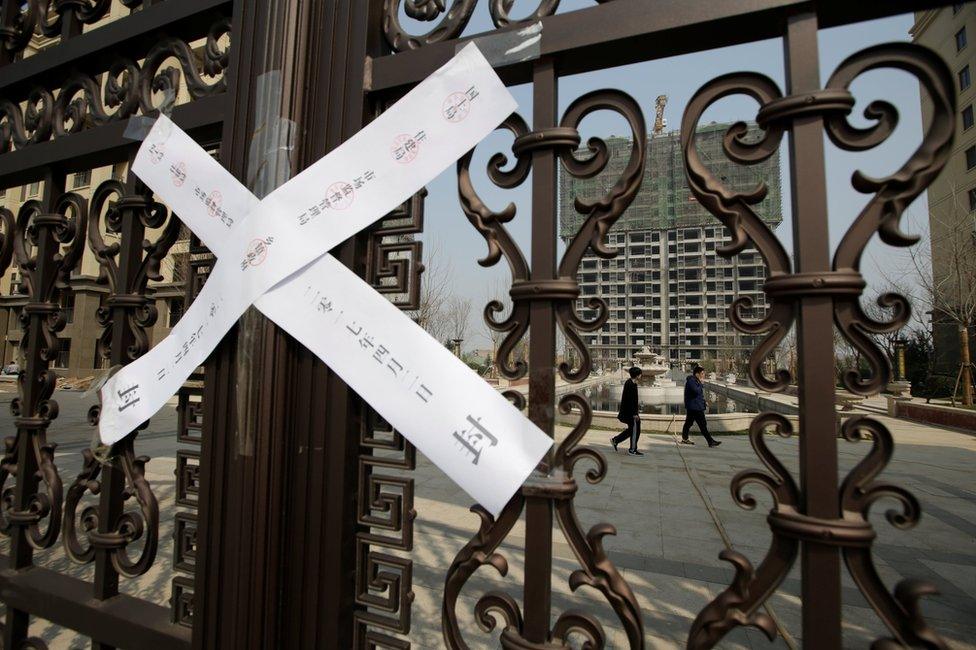
Authorities have had to ban new property sales in the area
A sleepy district in Hebei province has suddenly become the centre of China's latest property craze and the talk of the country.
Over the weekend, investors flocked to Xiongan in droves, while online it has been the subject of social media buzz.
What caused the rush?
It all began on Saturday when the Chinese government announced the location of a special economic zone (SEZ) which would effectively serve as an extension of Beijing.
The capital has been grappling with overcrowding, heavy pollution and congestion caused by a booming population, and officials are trying to relocate industries and encourage people to live further afield.
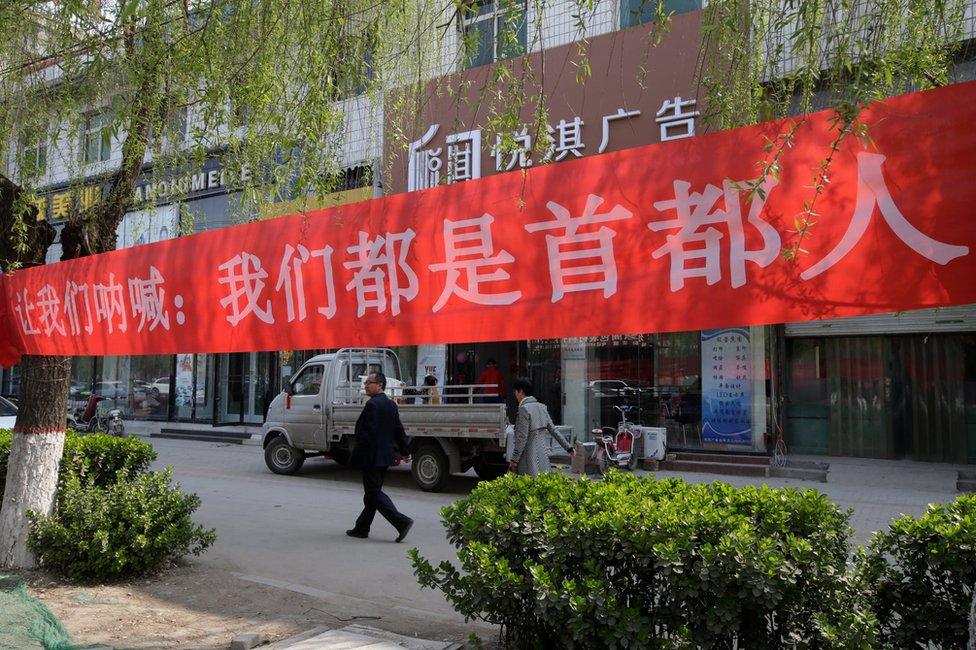
A banner put up in Xiongxian county said "Let us shout: We are all residents of the capital"
Called Xiongan New Area, the 100 sq km (38.6 sq mile) zone is expected to eventually expand to 2,000 sq km - nearly three times the size of New York - and is a key component of a massive "mega-region" developing around Beijing, Tianjin and Hebei.
Chinese media quoted President Xi Jinping as saying Xiongan - home to one of China's biggest wetlands - would be developed to world class standards, with a focus on ecological protection and well-being.
What happened?
Anticipation about a new possible SEZ - where the local authorities have more freedom to make their own economic rules to appeal to domestic and foreign investors - had been bubbling for months.
So when authorities confirmed its location in Xiongxian and Anxin counties, south of Beijing, investors wasted no time. Hundreds of property punters descended on the area immediately after the announcement.
Locals saw their normally quiet streets flooded with cars bearing Beijing and Tianjin licence plates, while hotels were completely packed out, according to local media.
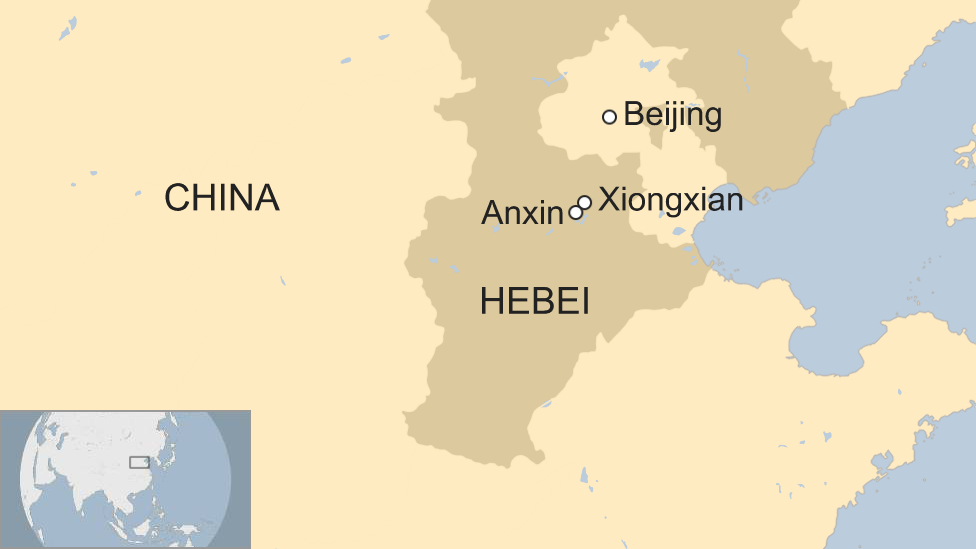
One local told Beijing News: "Today I've seen a lot of cars from elsewhere.
"I've been hanging out by the roadside just for a short while and so many people have approached me asking where they can buy houses, and how much the houses cost."
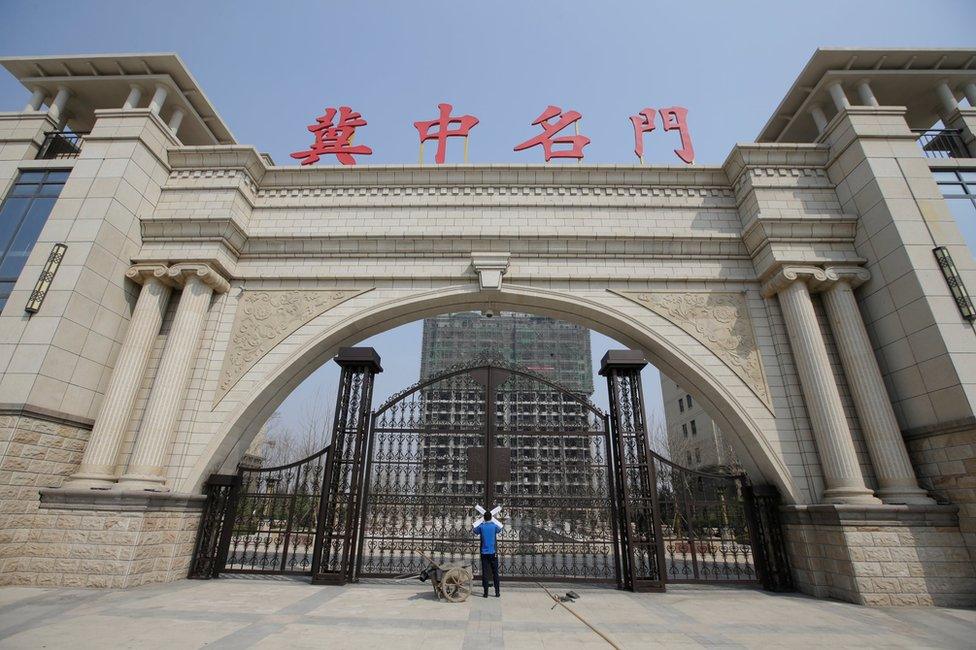
New developments have sprung up in Xiongxian in recent months
Homeowners were overjoyed to find themselves sitting on potential goldmines, with their property value skyrocketing overnight.
Online, jokes were made about how Xiongan men were suddenly the most desirable in the country thanks to their newfound wealth.
One post that went viral on social media showed a man jauntily posing for the camera, purportedly advertising himself as marriage material.
"Xiongan New Area marriage notice: Male, 53 years old... has two acres of land in Xiongxian," the caption read.
So good news for everyone?
Not quite. Alarmed by the rocketing prices, the government moved in on Sunday to burst the nascent property bubble by suspending all new sales in the region.
It also imposed strict regulations on who could develop and sell property in the area, as well as restrictions on residential permit registrations.
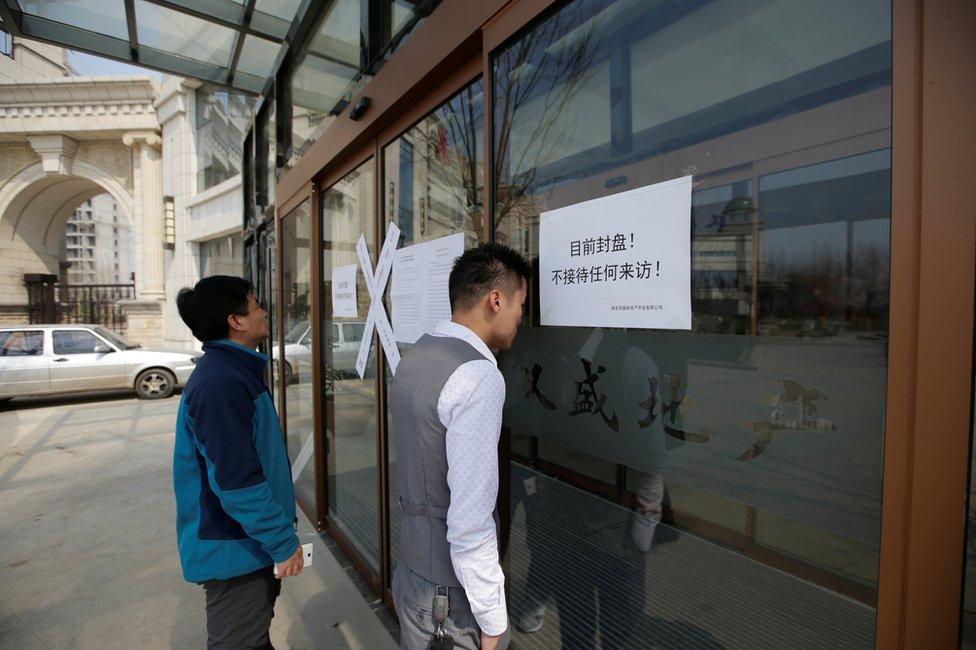
Property sales offices in Xiongxian put up signs on Sunday saying they had closed
But that hardly deterred investors, who simply redirected their attention to areas just outside Xiongan. Home prices in neighbouring counties have now started soaring too, reported the Global Times.
Chinese authorities have struggled to contain the fervour of their vast pool of investors, who traditionally consider property a sure bet and who have fuelled spiralling prices.
Government curbs introduced earlier this year did little to stop property sales by area rising by 25%, external in January and February, compared to the same period last year.
Xiongan, it seems, is yet another chapter in China's obsession with property.
- Published3 April 2017
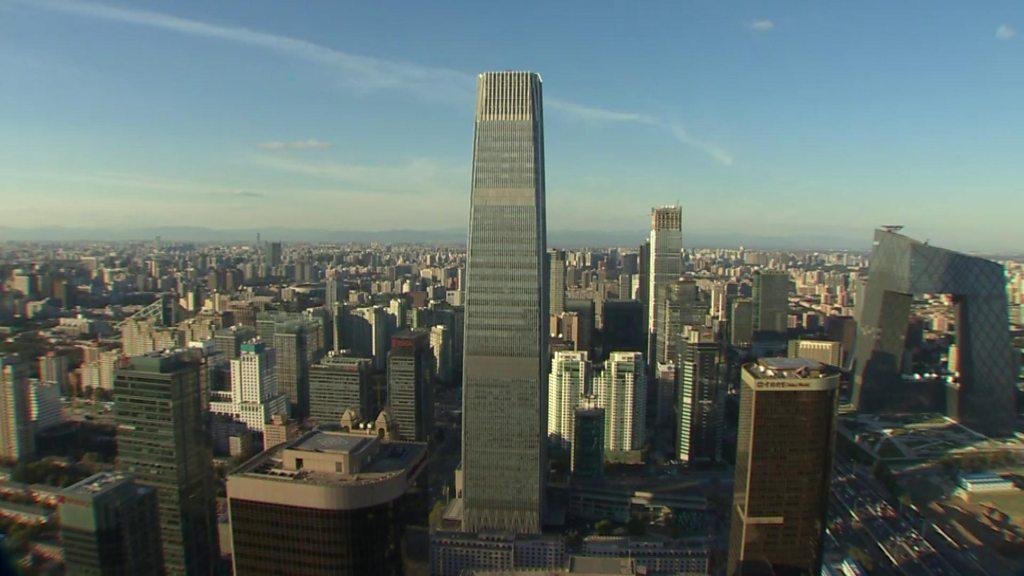
- Published15 December 2016

- Published16 November 2016

- Published28 September 2016